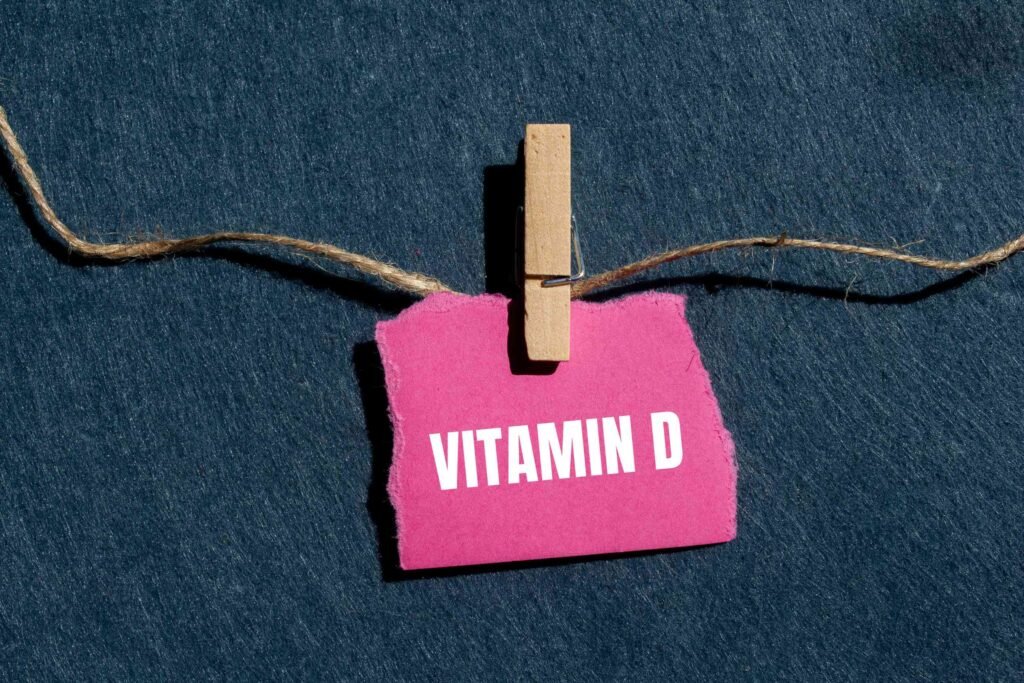How Vitamin D Deficiency Affects Ovulation & Hormone Balance?
How Vitamin D Deficiency Affects Ovulation & Hormone Balance?
When most people hear “Vitamin D,” they think about bone health, calcium absorption, or maybe just a little sunshine. But Vitamin D is far more than that—it’s a hormone-like nutrient that influences reproductive health, fertility, and even how stable your menstrual cycles are. In fact, research is increasingly showing that Vitamin D deficiency affects ovulation & hormone balance in ways that many of us don’t fully appreciate.

If you’ve been struggling with irregular cycles, infertility, or hormonal imbalances like PCOS (Polycystic Ovary Syndrome), understanding the role of Vitamin D could be a game changer. Let’s take a deep dive into how this “sunshine vitamin” connects to your reproductive health—and why making sure your levels are adequate might be one of the most important steps you take for your hormones.
Why Is Vitamin D More Than Just a “Vitamin”?
Technically, Vitamin D behaves more like a hormone than a vitamin. Your skin produces it when exposed to sunlight, and once activated by the liver and kidneys, it interacts with Vitamin D receptors located throughout the body—including in the ovaries, uterus, pituitary gland, and even the placenta.
That widespread presence tells us something important: Vitamin D plays a role in regulating reproductive function at multiple stages. From egg development to hormonal signaling, its influence is woven throughout the fertility process.
But here’s the catch: deficiency is incredibly common. Modern lifestyles keep us indoors, sunscreen blocks synthesis, and dietary sources of Vitamin D are limited. As a result, many women unknowingly run low on this crucial nutrient—and their reproductive health takes the hit.
Vitamin D and Ovulation: What’s the Link?
To ovulate, your ovaries need to develop a healthy follicle that matures and releases an egg. This process relies heavily on communication between the brain (pituitary gland) and the ovaries, regulated by hormones like FSH (follicle-stimulating hormone), LH (luteinizing hormone), estrogen, and progesterone.
So, where does Vitamin D come in?
- Follicle Development: Studies show that Vitamin D influences how well ovarian follicles mature. Low Vitamin D levels can result in poor follicular growth, which may prevent the release of a viable egg.
- Hormone Regulation: Vitamin D interacts with the genes responsible for producing sex hormones. Deficiency can disturb the delicate balance of estrogen and progesterone, throwing off the timing and quality of ovulation.
- Egg Quality: Some research suggests Vitamin D supports mitochondrial function within eggs, which directly affects their developmental potential.
In simple terms, Vitamin D deficiency affects ovulation & hormone balance by interrupting both the communication and the energy supply needed for healthy egg release.
How Vitamin D Shapes Hormone Balance
Hormones work like a symphony: when one instrument is out of tune, the entire performance feels chaotic. Vitamin D helps keep multiple hormone systems in harmony, particularly those tied to reproduction.
- Estrogen and Progesterone: Adequate Vitamin D supports the enzymes that regulate these sex hormones. Without balance here, luteal phase defects, PMS, or irregular cycles can occur.
- Androgens: Low Vitamin D is often linked with elevated testosterone in women, a hallmark of PCOS. This excess androgen disrupts ovulation and can cause acne, hair loss, or unwanted hair growth.
- Insulin: Vitamin D also influences insulin sensitivity. Since insulin resistance is closely tied to hormonal imbalance and anovulation in PCOS, deficiency makes matters worse.
Think of Vitamin D as a quiet backstage manager. You may not always see it, but without it, the hormonal “actors” on stage can’t perform properly.

Vitamin D Deficiency and PCOS: A Closer Look
PCOS is one of the most common causes of infertility and menstrual irregularity, and Vitamin D deficiency appears to worsen its symptoms.
- Women with PCOS are disproportionately low in Vitamin D compared to the general population.
- Deficiency is associated with higher levels of LH and testosterone, leading to irregular or absent ovulation.
- Supplementing with Vitamin D has been shown in some studies to improve menstrual regularity, reduce insulin resistance, and even restore ovulation in PCOS patients.
So, if you’re managing PCOS, one of the simplest yet most overlooked interventions could be checking—and correcting—your Vitamin D levels.
Fertility Outcomes: Why Vitamin D Matters in Conception
The fertility world has also been paying attention to Vitamin D’s role. Here’s what research shows:
- Women undergoing IVF (in vitro fertilization) with adequate Vitamin D levels often have higher success rates.
- Endometrial receptivity—the ability of the uterus to welcome an embryo—is partially influenced by Vitamin D status.
- Miscarriage risk has been linked to deficiency, suggesting that Vitamin D is essential not only for conception but also for sustaining a pregnancy.

That means Vitamin D deficiency doesn’t just affect ovulation; it may also impact implantation and the ability to carry a healthy pregnancy.
Signs You Might Have a Vitamin D Deficiency
The tricky part is that symptoms of low Vitamin D aren’t always obvious. Some women only discover their deficiency after struggling with infertility or hormonal imbalance. Still, here are some common clues:
- Frequent fatigue or low energy
- Muscle weakness or joint pain
- Depressed mood or seasonal affective disorder
- Irregular menstrual cycles
- Difficulty conceiving despite regular attempts
Since deficiency is so widespread, it’s worth testing even if you don’t have glaring symptoms.
Testing and Optimal Levels
A simple blood test called 25-hydroxyvitamin D measures your Vitamin D status. While “normal” ranges vary, many fertility specialists recommend aiming for 40–60 ng/mL to optimize reproductive health.
If your levels are below 30 ng/mL, you’re considered deficient. Anything under 20 ng/mL is severely deficient and requires more urgent correction.
Sources of Vitamin D
The good news? Vitamin D can be replenished fairly easily once you know you’re low. Here’s how:
- Sunlight: Just 10–20 minutes of midday sun exposure a few times a week can boost your levels—though this depends on your skin tone, latitude, and season.
- Food Sources: Fatty fish (salmon, mackerel, sardines), egg yolks, liver, and fortified dairy products provide dietary Vitamin D, though amounts are modest.
- Supplements: Vitamin D3 (cholecalciferol) is the preferred form for raising blood levels. Always check with your healthcare provider for dosing, since too much can cause toxicity.

Lifestyle Connections: More Than Just Sunshine
Interestingly, Vitamin D doesn’t act in isolation. Its effectiveness often depends on other lifestyle factors:
- Calcium and Magnesium: These minerals work alongside Vitamin D for proper hormone signaling.
- Weight Management: Excess body fat can store Vitamin D, making it less available for use. This partly explains why obesity is linked with both deficiency and fertility struggles.
- Gut Health: Since Vitamin D is fat-soluble, absorption depends on digestive health. Conditions like IBS or celiac disease can interfere with uptake.
Addressing Vitamin D deficiency in the context of your overall lifestyle ensures longer-lasting results for hormonal balance.
Practical Steps for Women Concerned About Fertility
If you’re reading this because you’ve had trouble conceiving or have noticed irregular cycles, here’s a step-by-step plan to consider:
- Get Tested: Don’t guess. A simple blood test can give clarity.
- Correct Deficiency: Work with your doctor to create a supplementation plan if needed.
- Supportive Nutrition: Include foods rich in Vitamin D and pair them with healthy fats for better absorption.
- Lifestyle Habits: Spend time outdoors, maintain a healthy weight, and support gut health.
- Monitor Cycles: Track ovulation with apps, basal body temperature, or ovulation predictor kits to see if improvements occur.

How Vitamin D Deficiency Affects Ovulation & Hormone Balance in the Long Term?
Long-term deficiency doesn’t just make conception harder. It can also influence perimenopause, increase the risk of osteoporosis (via hormone disruption), and even affect mental health through its links with estrogen and serotonin.
Women who maintain optimal Vitamin D levels often report smoother cycles, fewer PMS symptoms, and improved mood stability. Over the years, these benefits add up to better overall reproductive and hormonal wellness.
Myth-Busting: Common Misconceptions About Vitamin D and Fertility
- “If I eat healthy, I don’t need Vitamin D supplements.”
Unfortunately, diet alone rarely provides enough. Even nutrient-dense foods have limited Vitamin D. - “More is always better.”
High doses without medical supervision can lead to toxicity, causing calcium buildup and kidney issues. Balance is key. - “Vitamin D is only about bones.”
Science now shows its reach goes far beyond skeletal health, especially in reproductive systems.
Final Thoughts
Fertility is often viewed as something mysterious or complicated, but sometimes the missing puzzle piece is surprisingly simple. If you’ve been wrestling with irregular cycles, unexplained infertility, or hormone-related issues, don’t overlook Vitamin D.
By recognizing how Vitamin D deficiency affects ovulation & hormone balance, you give yourself the power to address a root cause that’s often left undetected. And while it may not be the sole answer for everyone, optimizing this “sunshine hormone” could be one of the most impactful steps toward restoring your reproductive health and overall well-being.


